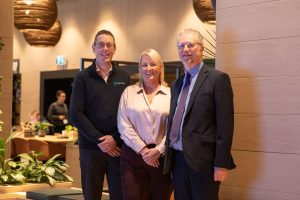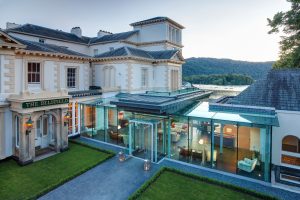Environmental business heroes revealed

A BATHROOM manufacturer, a sailing club and an online search portal are amongst this year’s winners of the Northwest Business Environment Awards.
The awards are now in their seventh year and businesses from across the region gathered at Old Trafford football ground to celebrate those compaies that have worked hard at their environmental credentials.
One such winner, with the large company award for Best Environmental Practice, was J&J Ormerod, the Bacup-based kitchen and bathroom manufacturers whose environmental improvements include installing a wood burning boiler and fitting lighting sensors and automatic machine controls to reduce energy consumption and target inefficient practices.
Meanwhile, Liverpool-based Cass Associates won the sub £1m Build Environment award for Liverpool Sailing Club, which was built with an on-site 6kW wind turbine and a biofuel generator, while the moat acts as security and collects rainwater for flushing toilets and washing down boats, and windows and vents allow for natural ventilation.
The Envirnmental Innovation award was this year split between two winners: Manchester-based, shiply.com and Earth Exchange in Leigh. Shiply.com allows hauliers to search for work submitted by individuals and businesses along the routes they are already driving, reducing the amount of lorries travelling empty, while Earth Exchange gives the construction industry to share surplus materials on sites, diverting it from landfill.
Walter Menzies, chief executive of the Mersey Basin Campaign, which organises the awards, said: “I’m incredibly proud that during these difficult economic times businesses are demonstrating through their innovation, practices and procurement that the environmental agenda won’t be left behind but rather placed firmly at the heart of their future success.”
Other winners were:
Best Environmental Practice, (SMEs): HJ Berry, the Preston-based furniture manufacturer, which uses timber from renewable sources, replenishes woodlands with native trees, and only uses electricity from green sources, including a biomass system.
Built Environment for project costing more than £1m: Tesco’s Cheetham Hill store in Manchester, which includes a sustainable timber frame, roof lights to allow natural daylight in, a Combined Heat and Power (CHP) plant to generate energy from sustainable sources, such a recycled vegetable oil, a natural ventilation system, recycled materials in signage and fixtures, and a metering system to monitor energy and water use.
Sustainable Procurement (private sector): United Utilities, which has changed from daily deliveries to weekly, as well as reducing packaging, choosing recyclable products, and gaining a saving of potentially £1m each year through switching to recycled plastic for ducting.
Sustainable Procurement (public sector): Cumbria County Council, which has spent over £1.2m on foods grown, reared and manufactured in Cumbria, including beef, lamb, organic milk, bread, vegetables, eggs and pastries and all foods are distributed by Cumbrian companies.
Environmental Leadership Champion: Colin Nineham, Eden Community Recycling in Cumbria.
Media and Communications Award: United Utilities. In 2008, the in-house press office launched the ‘Tap Into Water’ campaign to get customers to choose tap water over bottled water.








